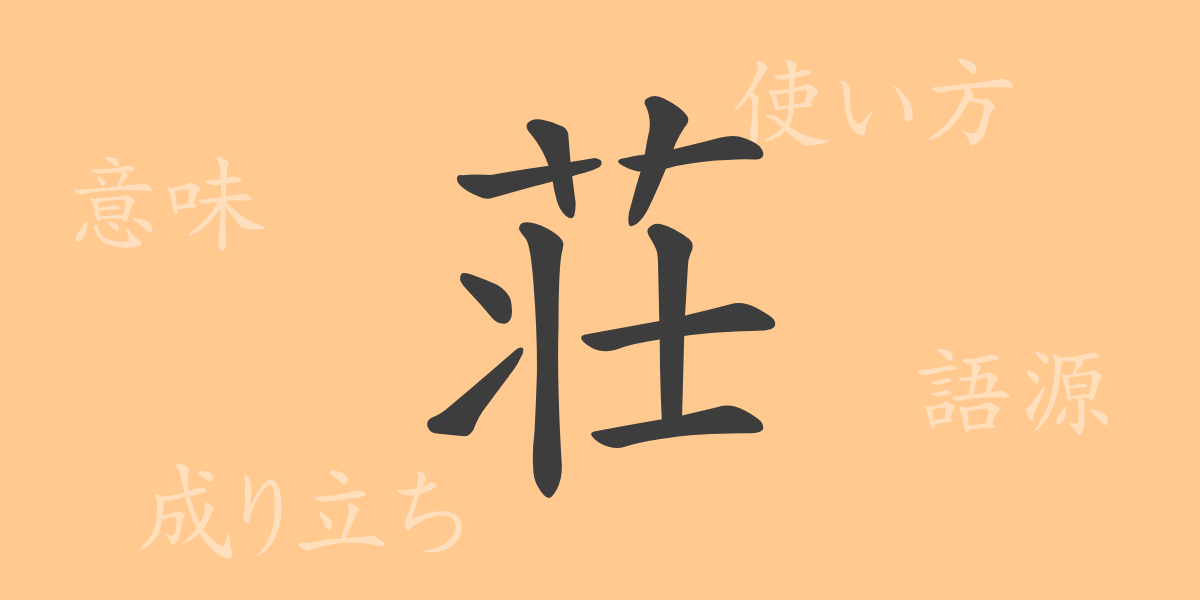Each Kanji character reflects the depth of a nation’s culture and language, containing a unique history and meaning. One such Kanji, “荘” (ソウ), is deeply embedded in Japanese history and culture and is used in various contexts. This article explores the Kanji “荘” (ソウ), from its origins to its meanings, usages, and its presence in idioms and proverbs.
Origins of 荘 (ソウ)
The Kanji “荘” (ソウ) originated in ancient China, where it was used to denote rural areas or gardens. Initially sharing meanings with “壮” related to strength and robustness, over time, it evolved to encompass meanings like “solemnity” and “majesty” as in “荘厳” (ソウゴン). In Japan, during the Heian period, the term became widely used with the establishment of the manorial system, referred to as “荘園” (ショウエン).
Meaning and Usage of 荘 (ソウ)
In modern Japanese, “荘” (ソウ) primarily conveys solemnity and dignity, as in “荘厳” (ソウゴン). Historically, it also referred to specific regions or agricultural lands as in “荘園” (ショウエン). It is commonly used as a modifier for nouns or adjectival verbs.
Readings, Stroke Count, and Radical of 荘 (ソウ)
Understanding the readings and structural elements of the Kanji “荘” (ソウ) can deepen comprehension:
- Readings: On’yomi “ソウ” (ソウ), with no commonly used Kun’yomi.
- Stroke Count: 9 strokes in total.
- Radical: Belongs to the “艸” (くさかんむり) radical group.
Idioms, Phrases, and Proverbs Using 荘 (ソウ) and Their Meanings
There are numerous idioms and phrases involving “荘” (ソウ), each with deep meanings:
- 荘厳 (ソウゴン) – Represents a state of being solemn and majestic.
- 荘重 (ソウチョウ) – Means being profoundly dignified and impressive.
- 荘園 (ショウエン) – Refers to privileged private lands in medieval Japan.
- 荘論 (ソウロン) – Indicates a profound and serious discussion.
Summary on 荘 (ソウ)
The Kanji “荘” (ソウ) encapsulates historical and cultural depths, playing a significant role in the Japanese language. It is used in expressions that convey a majestic ambiance and in terms associated with historical contexts. Understanding the meanings and uses of “荘” (ソウ) allows for a deeper appreciation of the richness of the Japanese language.

























